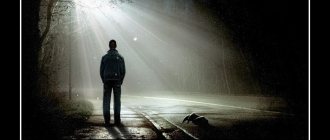Aphorisms and quotes from books by Russian authors -
Baratynsky E. * Batyushkov K. * Berggolts O. * Berdyaev N. * Blok A. * Bulgakov M. * Bunin I. * Bykov V. * Vyazemsky P. * Herzen A. * Gogol N. * Goncharov I. * Gorky M * Griboyedov A. * Green A. * Dobrolyubov N. * Dostoevsky F. * Yesenin S. * Ilf I. * Karamzin N. * Kataev V. * Kolchak A. * Krylov I. * Lermontov M. * Leskov N. - new author, quotes * Likhachev D. * Lomonosov M. * Mayakovsky V. * Nabokov V. * Nekrasov N. * Ostrovsky A. * Petrov E. * Prishvin M. * Pushkin A. - new quotes * Radishchev A. * Roerich N * Saltykov-Shchedrin M. * Simonov K. * Stanislavsky K. * Stanyukovich K. * Stolypin P. * Sumarokov A. * Tolstoy A.K. * Tolstoy A.N. * Tolstoy L.N. * Turgenev I. * Tyutchev F. * Fonvizin D. * Chekhov A. * Schwartz E. * Eisenstein S. * Ehrenburg I.
Russia, end of XX - beginning of XXI
— Akunin B. * Altov S. * Vysotsky V. * Geraskina L. * Dementiev A. * Zadornov M. * Kunin V. * Melikhan K. * Okudzhava B. * Rozhdestvensky R. * Sakharov A. * Snegov S. * Solzhenitsyn A. * Suvorov V. * Talkov I. * Troepolsky G. * Uspensky E. * Filatov L. * Chernykh V. * Shenderovich V. * Shcherbakova G.
Tolstoy Alexey Nikolaevich (1882 - 1945)
Quotes
- sheet
1 ()
Quotes from the fairy tale by A.N. Tolstoy “The Golden Key, or the Adventures of Pinocchio”, 1936
This teaching will not bring you any good... So I studied, studied, and - look - I walk on three legs. - (Fox Alice)
Artemon picked up the falling Pinocchio with his front paws and carried him into the house... Putting Pinocchio on the bed, he rushed into the forest thicket at a dog's gallop and immediately brought from there the famous doctor Owl, the paramedic Toad and the folk healer Mantis, who looked like a dry twig. The owl put its ear to Pinocchio's chest. “The patient is more dead than alive,” she whispered. The Toad whispered with his big mouth: “The patient is more likely alive than dead...” “One of two things,” whispered the People’s Doctor Mantis, “either the patient is alive or he is dead.” If he is alive, he will remain alive or he will not remain alive. If he is dead, he can be revived or he cannot be revived. The girl clasped her pretty hands: “Well, how can I treat him, citizens?” “Castor oil,” croaked the Toad. - Castor oil! - Owl laughed contemptuously. “Either castor oil, or no castor oil,” rasped Mantis.
“You have found yourself in the Land of Fools,” said the fox Alice. And she pointed with her paw to a broken bridge over a dry stream. On the other side of the stream, among the heaps of garbage, one could see dilapidated houses, stunted trees with broken branches and bell towers, leaning in different directions... Skinny dogs in burrs wandered along the crooked, dirty street, yawning from hunger. Goats with tattered hair on their sides nibbled the dusty grass near the sidewalk, shaking stubs of their tails. The cow stood with her head hanging; her bones were sticking out through her skin. Plucked sparrows sat on mounds of mud; they wouldn’t fly away even if you crushed them underfoot... Chickens with their tails torn out staggered from exhaustion... But at the intersections, fierce police bulldogs in triangular hats and prickly collars stood at attention. They shouted at the hungry and mangy inhabitants: “Come on!” Keep it right! Don't delay!.. The Fox dragged Pinocchio further down the street. They saw well-fed cats in golden glasses walking along the sidewalk under the moonlight, arm in arm with cats in caps. The fat Fox, the governor of this city, was walking, his nose raised importantly, and with him was a arrogant fox holding a night violet flower in his paw.
You have committed three crimes, scoundrel: you are homeless, without a passport and unemployed. Take him out of town and drown him in a pond. — (duty bulldog-policeman Pinocchio)
I'll just shake it with a whip - My meek people sing songs, collect money into my big pocket. - (Karabas Barabas)
Pinocchio said: “Pierrot, go to the lake, bring water.” Pierrot obediently trudged along, muttering poetry and stumbling, losing the lid on the way as soon as he brought water from the bottom of the kettle. Pinocchio said: “Malvina, fly down and pick up some branches for the fire.” Malvina looked reproachfully at Pinocchio, shrugged her shoulder, and brought several dry stalks. Pinocchio said: “This is the punishment for these well-mannered ones... He brought water himself, he himself collected branches and pine cones, he himself lit a fire at the entrance to the cave, so noisy that the branches on a tall pine tree swayed... He himself cooked cocoa in the water.”
The Adventures of Pinocchio (TV)
[cheerful music] [song] Who enters the house with a good story? Who is everyone familiar with since childhood? Who is not a scientist, not a poet, but has conquered the whole world? Who is recognized everywhere, Tell me, what is his name? Boo, Ra, Ti, No. Bu-ra-ti-no! There is a cap on his head, but the enemy will be deceived. He will show his nose to the villains and make his friends laugh to tears. He will be here very soon. Tell me, what is his name? Boo, Ra, Ti, No. Bu-ra-ti-no! He is surrounded by people's rumors, He is not a toy, He is alive. In his hands is the key to happiness, and that is why he is so lucky. Everyone sings songs about him, Tell me, what is his name? Boo, Ra, Ti, No. Bu-ra-ti-no! Bu-ra-ti-no! Boo, Ra, Ti, No. [organ organ plays] [whistles] Wow! [laughs] Nice log. Maybe it could be a table leg or something else. [hurdy-gurdy plays] Voice: Ha-ha! [short laugh] [short laugh] Oh! [laughter] Voice: Oh! It hurts! Wow! A little voice shouts: Aaah! [the carpenter screams in fear] - Hello, Giuseppe! - H-hello. Why are you sitting on the floor? And I lost a screw. And what did you think? Yes, I didn’t think anything. - My organ-organ is completely broken... - Ay-ay-ay! ...and I don’t know how I’ll earn my bread now. - Oh! - Oh, well... Listen, what’s easier! - Here, take this log from me. - Log? Why do I need a log? Well, you cut out a doll, you walk around the yards, [claps] Voice: Well, Giuseppe, you are a genius! - A? - A log, you say... Well, come on, perhaps, your log. Voice: Well, Blue Nose! Don't you hear what they are saying to you? Voice: Move! [the sound of a falling log] [the organ grinder screams] It's not me! It's not me! - Are you crazy? - It's not me, it's not me, it's not me! “Not me,” but that I hit myself in the leg? - No, not you. - Who? It's not you, it's not me, it's... it's... everything, everything, everything! So who? Shh! This is it. - Who is it? - Log! [noise, voice laughs] - Oh, a log... - A log. You, Gray Nose, are also a liar! Oh, what? You swear, yes! Well, come here! [voice laughs] No, come here! I'll grab your nose! [voice laughs] [fight] Voice: Come on, give him a good hard time! And you - to him! Voice: Well, come in from the left! Come in on the right! Voice: Give it right to his nose! [laughs] Voice: Eh, oops! Ha ha! Voice: Eh, bam! Ha ha! - Oh! [noise of a falling board] Oh! Giuseppe, are you still alive? Yes. Oh, it seems to me that someone has quarreled between us. Don't you give up? Ah, hmm, it gives up, Carlo! Voice: Make peace, or something! [sighs] Let's make peace! Let's! - Just in case. - Well, yes. - Otherwise, anything can happen. - Of course, well... [laughs] Ah, ah, ah, what tenderness! But fighting is still more fun! [music] [song] We are not bad people, Like evening we are on our way. Lamplighters are dashing, Wizards are almost. We walk after, after, after, To where there is shadow, shadow, shadow. Let there be light, light, light, Like day, day, day. We don't play hide and seek at midnight
Malvina Quotes
Two married Malvinas, 21/170/65 and 21/180/65, want to meet the rich Buratinos, who will not spare 5 gold coins for them! &
Malvina has a devoted dog with a purple bow AND a house. There is a set of porcelain plates and cups. Great. There is a notebook for writing and a quill pen. There is Pierrot. The one who loves her and is ready to endure all curses. There is a dress with a Gucci brand on it. And a car. Malvina just looks, biting her lip slightly - Pu-s-that. Malvina has no heart. It's always like that with dolls.
You rush like a black horse, you don’t see what’s happening around you, you just run, forward, forward, forward, overcoming all obstacles and avoiding any delays. The blood is like a stream of hot lava, flowing slowly, burning everything in its path. There is nothing more, speed, goal, finish. The distance is really long and this makes the strength less and less, but at certain moments a second or third wind opens, because with such zeal to overcome so much distance and retreat, one must be a fool. And so you run, all exhausted, no strength, wild thirst, your skin is all torn by branches, all dirty, you finally stop to take a breath, gain more strength in a short time and reach the end. And when you stop, you see a cold forest around you, a complete absence of anyone around, loneliness, twilight, drizzling gray rain, unusual moonlight breaking through the thick fog and there is no way to warm up, wrap up, or rest. There is only one chance left to replenish your strength and get warmth, this is the vision for whom you are running, for whom this is all started, because there at the end, when you get there, she is waiting for you... The one and only one, your beloved, for whom you throw yourself through everything possible obstacles and dangers, sweeping away everything in its path. But you go to her and don’t go, but rush at full speed, because waiting is unbearable. And being in such a situation, having no connection with your beloved, even if the star would hint that everything is fine, you are on the right path - fight! But this is not there, silence, twilight and you are alone with your thoughts... At such moments, only faith remains, faith in the fact that, in spite of everything and all possible marriage proposals from the local princes, who are all in silks and gold, and never saw danger, defeat, wild nature, did not experience pain, but lived like cheese in butter. All that remains is Faith, that your beloved will not give up and will wait for the sometimes clumsy, not always mannered, wild beast who is now stuck between two worlds - the place where he ended up, and the place where she remained. And there is no connection between them, only if it comes from the heart. And from it, the heart, comes such a flow of energy that makes you get up after every fall, weed out small problems and run forward, forward, forward!
Yes, perhaps not the best approach, but passion, impulse, patience, an unquenchable desire to achieve your beloved is not everyone’s lot. I don’t understand how you can hesitate, how long you can think, how you can even waste your time on useless things, when you can move forward together, move mountains, enjoy life and every moment it gives us. Maybe, of course, for the black horse, which is now sleeping somewhere in the branches, all beaten and tormented by nature, with fresh wounds, everything will end with no luck. When it comes, it will be too late. But he won’t give up, he won’t give up until the end until he sees either victory or defeat, and he absolutely cannot give up his faith in her, faith in that little, smiling princess with gorgeous facial expressions. Of course, there are other problems that arise along the way; in dreams, clues began to come that she was the only one constantly running away, turning away from her beloved. This is very confusing, sends the wildest urge to give up, turn around and go back, or even stay in the same place and wait for something to happen. But through himself, through the insurmountable pain from this version of the outcome, he gets up from the ground and with pain in his muscles from the path, he begins to first walk, then run, then rush through the fields and oceans to his beloved. And he himself has only one small dream in his head, to run, to fall completely exhausted in front of her and to feel that she was waiting for him, to feel how she will warm him with her warmth, hug him, gently whisper: Darling, I’ve already been waiting for you, I can’t live without you. She will take you to the bedroom, hug you, and say in your ear: Beloved, good night and fall asleep on your shoulder, sweet, beautiful and most magnificent girl, for whose sake all this is... For whose sake nothing is scary, not pain, not darkness, not distance, not expectation, for which you want to do everything, so that she always smiles, every day, every minute and happiness never leaves her soul, I just want to do it for her, because simply and without further ado - I love...
“He continues to give us warmth even now,” Malvina sighed and threw the remains of Pinocchio into the fireplace...)))
Quotes on the topic "Pinocchio"
A little history
Carlo Collodi's fairy tale "Pinocchio" was first published in 1881 in Rome. Alexei Tolstoy began work on his own literary retelling of this work in 1923. He soon put it aside and returned in 1934. “Pinocchio” was revealed to the world in 1936.
By that time, Pinocchio had already been translated into Russian, like many others, and published in Russia. It is impossible to say that Tolstoy discovered an unknown fairy tale for the Russian-speaking reader.
For what?
Cases when writers take on the task of retelling someone else's work are not so unique, but they raise a reasonable question about motives. After all, such creativity creates grounds for suspicion of unscrupulous writing, plagiarism, and lack of one’s own ideas. Surely Tolstoy understood the risk of such gossip.
The reason, in my opinion, is this: at the moment when he was editing one of the Russian translations (published just in 1924), a lively, deep interest in this fairy tale arose in him.
But it’s one thing if a writer, inspired by someone else’s idea, begins to develop it and creates a sequel. It's completely different if he changes the original story. That is, the story of Pinocchio “hooked” Alexei Nikolaevich so much that he began to perceive it as his own, but at the same time, something turned out to be “wrong” in it, which was changed in the process of “literary retelling”.
What if, having understood the essence of both fairy tales and understanding the semantic differences, one can find the very inner motives that controlled Tolstoy and forced him to neglect the ethical slipperiness of the moment and rewrite the fairy tale? I decided to check it out.
And so - at the bottom of the gloomy (as it turned out) gorge separating “Pinocchio” and “Pinocchio”, not only the hidden meanings of the two stories and their heroes were discovered, but also the metaphysical body of Alexei Nikolaevich Tolstoy himself, the writer and the man.
Pinocchio
The tale, written by the Italian Collodi, was originally born from a popular folklore story about a runaway child. It is noteworthy that the wooden boy's father has a nickname - "Corncake." This is, practically, a direct allusion to those numerous fairy tales in which the escaped character turned out to be baked goods, including the Russian Kolobok (see “The Curse of Kolobok”).
The first version written was quite short and ended with Pinocchio hanging from a tree - the fox and the cat pulled him up to get the gold. That is, the plot repeated the pattern of folk tales: a naughty ersatz child runs away and becomes a victim of the cunning and dangerous inhabitants of the big world.
But soon Collodi returned to the fairy tale and completed it in the version that spread throughout the world. Pinocchio was given a chance to survive, be tested and change.
And most importantly, Pinocchio has found a goal...
Search for freedom
Collodi, creating his wooden Pinocchio, intuitively touched upon a deep, completely childish topic. He wrote a story about the search for freedom, and about the very metaphysics of freedom.
After all, a wooden man is a golem, deprived of his own will, created to obey someone else’s power, to be a puppet in the literal sense. It’s not for nothing that the inhabitants of the puppet theater immediately recognize him as “one of their own.”
And from the first minutes of his life, Pinocchio awakens to a rebellious desire to escape, to break free from Geppetto, his “father,” from any obligations and responsibilities, from the need to study and work. In other words, he does not want to conform to either the pattern of life or the laws of his puppet nature.
But external freedom, as Pinocchio initially understands it, each time turns into dangers, mortal threats, hunger and the very lack of freedom from which he seems to be running. He is thrown into prison, put on a dog chain, tied up, drowned, etc.
And gradually his idea of freedom changes and takes on a completely different embodiment. Pinocchio's main existential aspiration is formed - to become a real living boy.
Eternal Wood Golem
Alexey Tolstoy completely changes the main goal of the character. He clears out the whole subject of humanization. Pinocchio does not strive to become a living boy; he is ready to remain a wooden doll. And he remains one.
Pinocchio's transformation does not occur.
At the same time, Tolstoy replaces one goal with another. Before we talk about it in more detail, we need to consider one more important thing.
Nose
Yes, yes, that same nose.
It sticks out and reminds everyone that this is not a person, but a wooden doll carved from a log.
Pinocchio's nose has an unusual property - it gets bigger when its owner lies. As soon as Pinocchio lies, his golem trait begins to grow. It is quite possible that Collodi thus pursued the rather obvious educational line of his tale, frightening children with the consequences of deception. But, consciously or not, he linked lies and golemism into one symbolic chain and thereby gave birth to a deep metaphor that lies beyond the moral understanding of lies:
A lie makes a person unfree and fetters him. A person becomes a hostage to the lies that he generates. Even if he gives birth to her for his own convenience, this lie begins to control him, like a doll. If he does not reject someone else's lies, he submits to them.
And this idea is one of the main ones hidden in Collodi’s tale.
Lies and Tolstoy
Tolstoy, rewriting the fairy tale, cleanses out this idea.
Pinocchio's nose is static and does not react to lies.
But the theme of lies is not so easy to get rid of, and in Tolstoy’s fairy tale it comes to life in the most unexpected way. Before we see how, let's remember Pinocchio's main goal.
Golden Key
Having taken away from the wooden boy the desire to become a man, Tolstoy offers him another goal - the Golden Key. This substitution gives rise to interesting differences between the two tales.
Pinocchio's goal is not his own. It is carefully “imposed” on him by other characters. They tell him about the secret of the key and the secret of the door in Papa Carlo's hut. They help him take possession of the key and open the door. And even Karabas Barabas, if you look closely, helps him in this, although he participates in the game as an antagonist.
Buratino's goal does not require any internal changes from him. The Golden Key is a magical solution. It is enough to insert it into the door, turn it, and the heroes will find themselves in a new magical world. Turning the key does not change the heroes, but it changes the world itself.
Remember when Tolstoy wrote a fairy tale? Same thing. A metaphor for a magical future waiting for everyone behind a magic door that is about to open. You don't need to change yourself, you just need to turn the key...
But what's behind the door?
Illusion
And there, behind the door, the Theater awaits Pinocchio and other heroes. Not like Karabas Barabas, but different - bright and joyful. Why, exactly, different? This is just a declaration. If we analyze the metaphorical meaning of the very image of the Theater, then the key thing in it is... that same lie. Illusion. Voluntary deception. Replacing reality with representation. A staged action presented as reality. Invisible strings over dolls.
Dolls! After all, they all remained dolls. And Pinocchio, and Harlequin, and Pierrot - the whole troupe. Tolstoy did not let them turn into people, he left them as dolls and simply lured them to another theater. And who will manage them in this theater?
Papa Carlo
Well, of course he is Papa Carlo. It is he who takes all the dolls of Karabas Barabas to this new theater. And the path to the new world does not lie across distant lands, but goes down the steps of the stairs leading to the basement of Pope Carlo.
And what do we see now, having opened and compared the key codes of the two fairy tales?
“Pinocchio” is a story about a doll who wanted to become a living boy and became one; and for this I went through a difficult path of getting rid of illusions and my own lies. The story of internal liberation from the doom of being a wooden golem.
Pinocchio is a story about dolls who are seduced by the idea of external liberation, but in reality they are lured from one theater to another, but also a theater, a world of illusion. And they are still dolls in it. And the only change in the whole story: instead of Karabas Barabas, Papa Carlo now rises above them.
Papa Carlo. Father Carlo. Father of Nations. Or, as they say in recent years, simply “Dad.”
And under him is an eternal, never changing, ready to obediently respond to the movement of tugged threads, a wooden child who does not want to free himself from lies and become human.
1936
I included the year of release of “Pinocchio” in “Detgiz” in the title of the final paragraph of this study.
The symbolism of the plot and characters of the fairy tale, written by Tolstoy in 1936, could
turn out to be not so obvious and deep... If he had not taken another fairy tale as a basis. In place of the meanings Tolstoy cut out, there remained such clear contours of a gaping void that they attract the eye more strongly than the meanings with which he tried to replace what was cut out. And the overall picture ceases to be a fairy tale at all, but turns into a rather gloomy canvas.
postscriptum
I deliberately did not consider the personal story of Alexei Tolstoy with his “search for his father,” as well as the suspicions of his contemporaries that this story was not without fraud. Most likely, the story with his father became a point of internal attraction, which revived the Italian fairy tale for him so much that he perceived it as his own and began to rewrite it. And while rewriting, he threw out what was alien and filled the empty spaces with his own meanings. It’s unlikely that he realized that a children’s fairy tale would tell so much about himself, about eternally frozen time and about all of us who never wanted to stop being wooden men in the hands of “Papa Carlo.”





